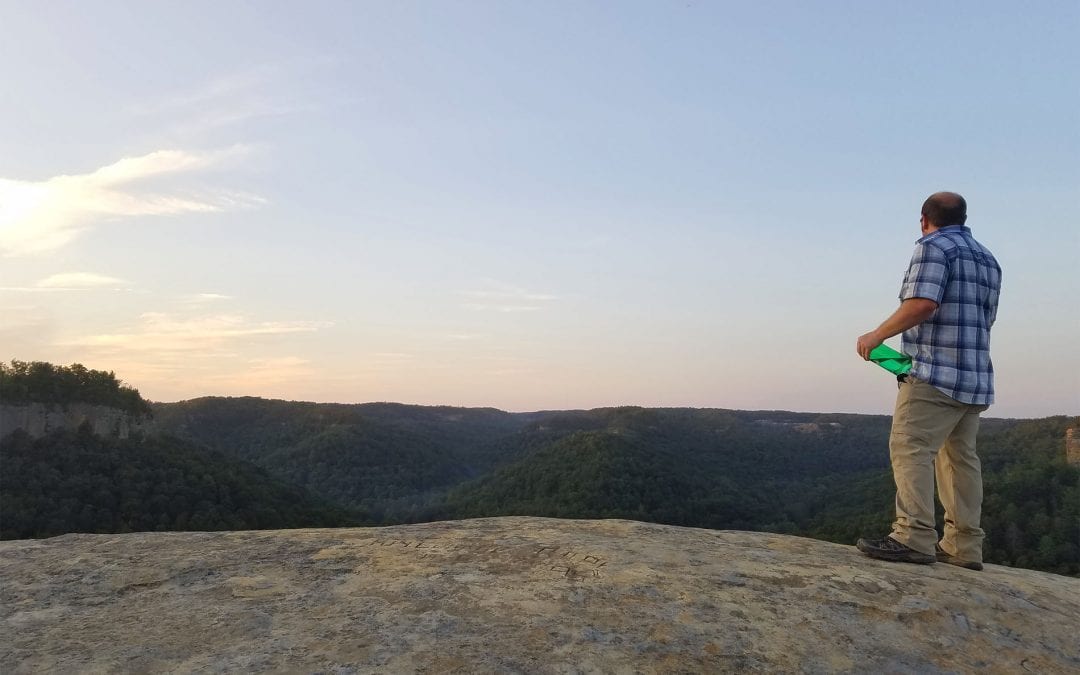Happy New Year! There is no better way to kick off 2020 than with a hike in Red River Gorge. Nature offers one of the most reliable boosts to your mental and physical well-being. Want to know the best part? It’s free! Hiking in Red River Gorge doesn’t cost a thing and has several other potential benefits such as:
Improved short-term memory
In one study, University of Michigan students were given a brief memory test, then divided into two groups.
One group took a walk around an arboretum, and the other half took a walk down a city street. When the participants returned and did the test again, those who had walked among trees did almost 20% percent better than the first time. The ones who had taken in city sights instead did not consistently improve.
Another similar study on depressed individuals also found that walks in nature boosted working memory much more than walks in urban environments.
Source: Psychological Science, 2008; Journal of Affective Disorders, 2013
Stress Relief
Tensed and stressed? Head for the trees. One study found that students sent into the forest for two nights had lower levels of cortisol — a hormone often used as a marker for stress — than those who spent that time in the city.
In another study, researchers found a decrease in both heart rate and levels of cortisol in subjects in the forest when compared to those in the city. “Stressful states can be relieved by forest therapy,” they concluded.
Among office workers, even the view of nature out a window is associated with lower stress and higher job satisfaction.
Source: Scandinavian Journal of Forest Research, 2007; Environmental Health and Preventative Medicine, 2010; Japanese Journal of Hygiene, 2011; Biomedical and Environmental Sciences, 2012
Sharper thinking and creativity
“Imagine a therapy that had no known side effects, was readily available, and could improve your cognitive functioning at zero cost.” That’s the dramatic opening to a 2008 paper describing the promise of so-called “nature therapy” — or, as a non-academic might call it, “time outside.”
When college students were asked to repeat sequences of numbers back to the researchers, they were much more accurate after a walk in nature. This finding built on previous research that showed how nature can restore attention and memory.
Another study found that people immersed in nature for four days — significantly more time than a lunchtime walk in the park — boosted their performance on a creative problem-solving test by 50%. While the research suggests the possibility of a positive relationship between creative thinking and the outdoors, it wasn’t enough to determine whether the effects were due to “increased exposure to nature, decreased exposure to technology, or other factors.”
Source: Psychological Science, 2008; PLOS ONE, 2012
Improved mental health
Anxiety, depression, and other mental health issues may all be eased by some time in the great outdoors — especially when that’s combined with exercise. This is to be expected, as both greenery and exercise are known to reduce stress.
One study found that walks in the forest were specifically associated with decreased levels of anxiety and bad moods, and another found that outdoor walks could be “useful clinically as a supplement to existing treatments” for major depressive disorder.
“Every green environment improved both self-esteem and mood,” found an analysis of 10 earlier studies about so-called “green exercise,” and “the mentally ill had one of the greatest self-esteem improvements.” The presence of water made the positive effects even stronger.
Source: Environmental Science and Technology, 2010; Evidence-Based Complementary and Alternative Medicine, 2012; Journal of Affective Disorders, 2013



